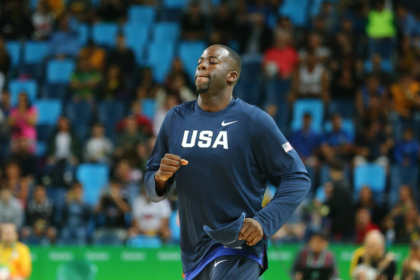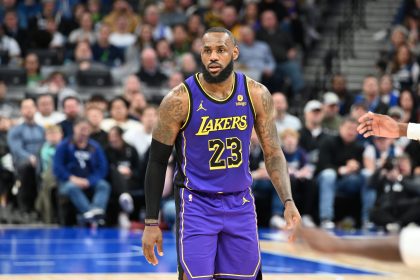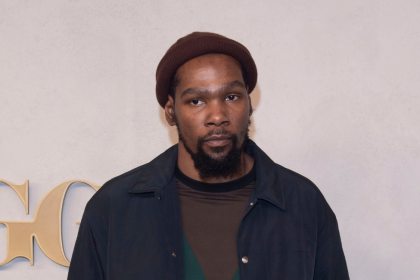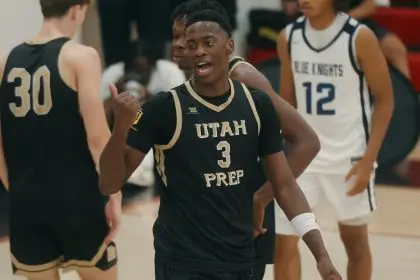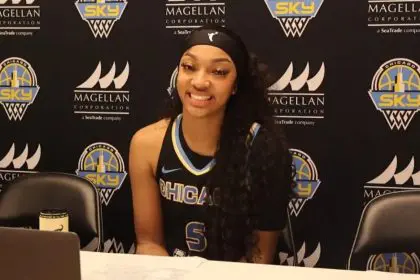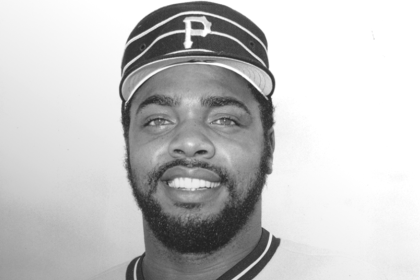There are certain athletes who can define and change the culture of a city. During his tenure with the Atlanta Hawks in the mid-‘80s and early ‘90s, Dominique Wilkins was the first athlete who came to mind when there was a mention of Atlanta sports.
On the court, there were not many players who could match Wilkins’ overall athletic ability. In an era where Michael Jordan, Magic Johnson and Larry Bird ruled, Wilkins did more with fewer Hall of Fame teammates.
His storied career will be cemented on March 6 when he will be honored with a 13 ½ -foot tall statue that will be placed in front of Philips Arena in Atlanta.
Several weeks before the unveiling, Wilkins spoke with rolling out to discuss the honor, the culture of Atlanta sports, and the success of the current-day Hawks.
When you first discovered that you would be honored with a statue, what were your initial thoughts?
Well, I was very excited. It’s been about eight years that we have been talking about this. Since I went into the Hall of Fame, Brian Hanlon of Hanlon Studios was really the one who had the vision of doing the statue. Now that it’s coming to fruition, it’s almost surreal. So I guess I almost can’t believe it.
This has been a dream season for the Atlanta Hawks with the team leading the NBA in wins before the All-Star break. What has the atmosphere been like?
It’s a buzz. It’s a buzz because of the team. It’s almost like the stars are aligned for our team. The city. With me having the statue and a documentary. So it’s like, it couldn’t have been better timing. The team is winning. It’s just a wonderful time to be a part of Hawks basketball.
What was Atlanta like when you arrived? This is traditionally a football state, how did that change?
I think we came in and made it a basketball town. Playing with Eddie Johnson and all those guys who were here at that time, we kind of put Atlanta on the map as far as basketball. We were on TV all the time. We were on Turner cable network all the time. We were an entertaining team to watch.
You played in an era where officials rarely called fouls. It was brutal. How many points per game could you have averaged in today’s game that doesn’t allow defense to be physical?
You didn’t get free shots in my era. You had a lot of guys who took defense personal. I don’t remember a time where I got a wide open shot. It just didn’t happen. It was a physical era of basketball. But it was something that our bodies had been conditioned to go through. I wouldn’t change that era for anything in the world. That was a fun era. The game was still high scoring. But I really don’t know how much I would average in this era. I averaged 28 and 29 points per game during a stretch of 14 years. So I would probably [would have] averaged over 35 points a game. Easy.
Atlanta has a strong civil rights history. How important was it for you to play in a city that was the birthplace of Dr. Martin Luther King Jr.?
I came to Atlanta in 1979. I grew up in the Civil Rights Movement, and I’ve seen some of the things and injustices that people went through. To be kind of anointed as the native son here in Atlanta, it’s so special for me because I came up with Dexter King and some of the people in his family who I’ve built a relationship with. To be in a city where Martin Luther King tried to bring about equality and rights for everyone was a special time to be a part of history. Growing up in the ‘60s, I saw that history unfold. A lot of people died for the cause, and Dr. King being right at the top of that list. So we should never forget what he died for and what he tried to do to bring about equality in this country.
You are also vocal in the community. What are some issues that are important to you?
I’m a big advocate for spina bifida. My youngest daughter suffers from it and I’m trying to do whatever I can to help find solutions for kids who suffer from it. Second thing is diabetes. My father and grandfather both died from diabetes, so diabetes is really near and dear to my heart. I’ve been doing diabetes awareness for seven years. We’ve come up with this website called the DominiqueWilkinsDreamTeam.com where people can go and get tips, they can get different healthy food tips as well, and different medications that they can take to help with their diabetes.
Why will Atlanta always be a special place for you?
For me, I always give respect as far as what the city means to me and what these fans mean to me. These fans in this city and this state made me who I am. I can’t thank the fans of this city enough for always being there for me. Always supporting me. They’re the big reason all of the stuff is happening for me. I love the city of Atlanta. I love the fans here. I love the city more than the people know. That’s why I stayed and never went anywhere. I stayed for the people of Atlanta.



